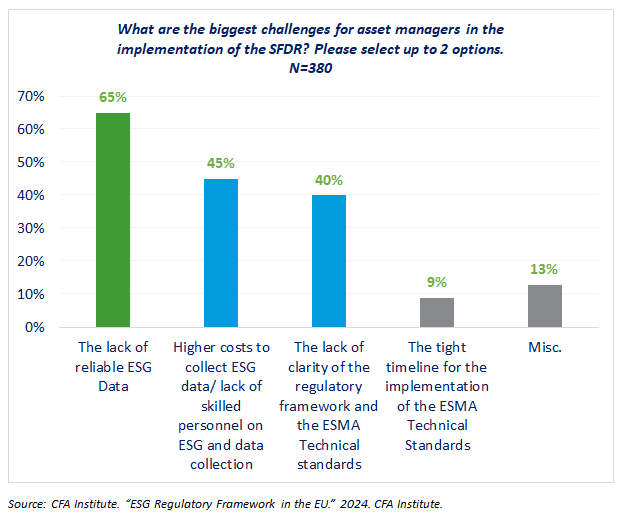The private equity (PE) industry is undergoing a fundamental shift as Environmental, Social, and Governance (ESG) considerations reshape investment strategies and portfolio management. Driven by stringent regulatory measures like the EU Green Deal, the Corporate Sustainability Reporting Directive (CSRD), the EU Taxonomy Regulation, and the Sustainable Finance Disclosure Regulation (SFDR), ESG integration has moved from a trend to a structural priority for PE firms. This article delves into the key regulatory impacts, challenges, and opportunities surrounding ESG integration in PE, highlighting how firms can leverage ESG to drive long-term value and resilience.
This article is written by Hans van Loenen ([email protected]) and Mourad Seghir ([email protected]). Hans and Mourad are both part of RSM Netherlands Business Consulting Services with a specific focus on finance & sustainability.
1. The Regulatory Landscape: A New Paradigm for PE Firms
European regulations have emerged as a significant catalyst for ESG adoption within PE. The EU Green Deal and its associated policies require PE firms to overhaul their traditional approaches, prioritizing investments aligned with sustainability goals and carbon neutrality. This shift is not only regulatory but strategic, necessitating changes across due diligence processes, portfolio management, and exit strategies.
The Corporate Sustainability Reporting Directive (CSRD) mandates enhanced ESG reporting from companies, impacting PE firms’ portfolio companies directly. The Alternative Investment Fund Managers Directive (AIFMD) requires fund managers to disclose ESG metrics, impacting risk assessment and transparency. Combined with the EU Taxonomy and SFDR, these frameworks demand higher standards of data collection, compliance infrastructure, and a deep understanding of sustainability issues.
2. ESG Metrics as a Value Driver in Private Equity
Investors are increasingly recognizing that companies with high ESG scores can deliver financial benefits beyond compliance. Research consistently shows that high ESG-rated firms exhibit lower costs of capital due to their reduced exposure to systemic risks. For PE firms, integrating ESG metrics can lead to:
- Reduced Financing Costs: Strong ESG performance signals lower risks to lenders and investors, leading to favorable debt terms and increased equity valuations.
- Enhanced Financial Stability: High ESG-rated companies display resilience during market fluctuations, contributing to long-term stability and reduced portfolio volatility.
- Premium Valuations at Exit: ESG compliance attracts a wider pool of buyers, including institutional investors with sustainability mandates, increasing the valuation of PE portfolios at exit.
3. The Challenges of ESG Implementation: Data Quality and Regulatory Complexity
Implementing a comprehensive ESG strategy presents several challenges, primarily due to the lack of high-quality, independently verified data. Many companies still lack standardized sustainability reporting, which complicates PE firms' ability to assess and compare ESG performance. Additionally, compliance with evolving standards requires a significant investment in technology, personnel, and training—especially challenging for smaller firms with limited resources.

According to recent data, 65% of asset managers cite the lack of reliable ESG data as a major obstacle. Without independently audited data, there is a risk of greenwashing, where companies may exaggerate their ESG achievements. This data gap also limits investors’ ability to make informed, strategic decisions, ultimately hindering the broader adoption of sustainable investment practices.
4. ESG’s Role in Risk Management and Long-Term Success
ESG integration is increasingly seen as a risk mitigation strategy rather than just a compliance requirement. High ESG scores correlate with stronger risk management and operational efficiency, reducing a firm’s exposure to long-term risks like climate change, resource scarcity, and regulatory penalties. For PE investors with a long-term focus, ESG-enhanced portfolios are more attractive, as they typically experience less volatility and show a clearer path to sustained financial success.
5. A Strategic Approach for PE Firms: Key Actions for Successful ESG Integration
To remain competitive, PE firms need to adopt ESG frameworks that span the entire investment lifecycle. Here are strategic actions PE firms should consider:
- Invest in Data and Expertise: Develop robust ESG data collection systems and invest in personnel capable of navigating complex regulatory landscapes.
- Embed ESG into Due Diligence: ESG assessments should be an integral part of the due diligence process to identify potential risks and opportunities from the outset.
- Collaborate with Portfolio Companies: Engage actively with portfolio companies to embed sustainable practices that align with regulatory expectations and create value.
- Monitor Evolving Regulations: Staying ahead of regulatory trends can provide a competitive advantage and position firms as leaders in sustainable investment.
Conclusion: The Future of ESG in Private Equity
The integration of ESG in private equity represents a profound shift toward responsible and resilient investment practices. Firms that embrace these changes will not only fulfill regulatory requirements but also position themselves as leaders in a market where ESG is a defining factor of long-term value. As sustainability challenges intensify, PE firms that prioritize ESG are poised to capture a premium in both financial performance and market reputation, transforming ESG from a regulatory hurdle into a fundamental component of successful investment strategies.
To learn more about ESG integration and its impact on private equity in the EU, please refer to our report, “The Impact of ESG on Private Equity: How Firms Can Navigate the Transformation Successfully.” In this report, we explore the evolving regulatory landscape, the link between ESG performance and financial returns, key challenges in implementation, and the role of private equity in advancing sustainable practices. Additionally, we provide actionable recommendations to help firms effectively integrate ESG principles and capture long-term value in a rapidly changing market.

